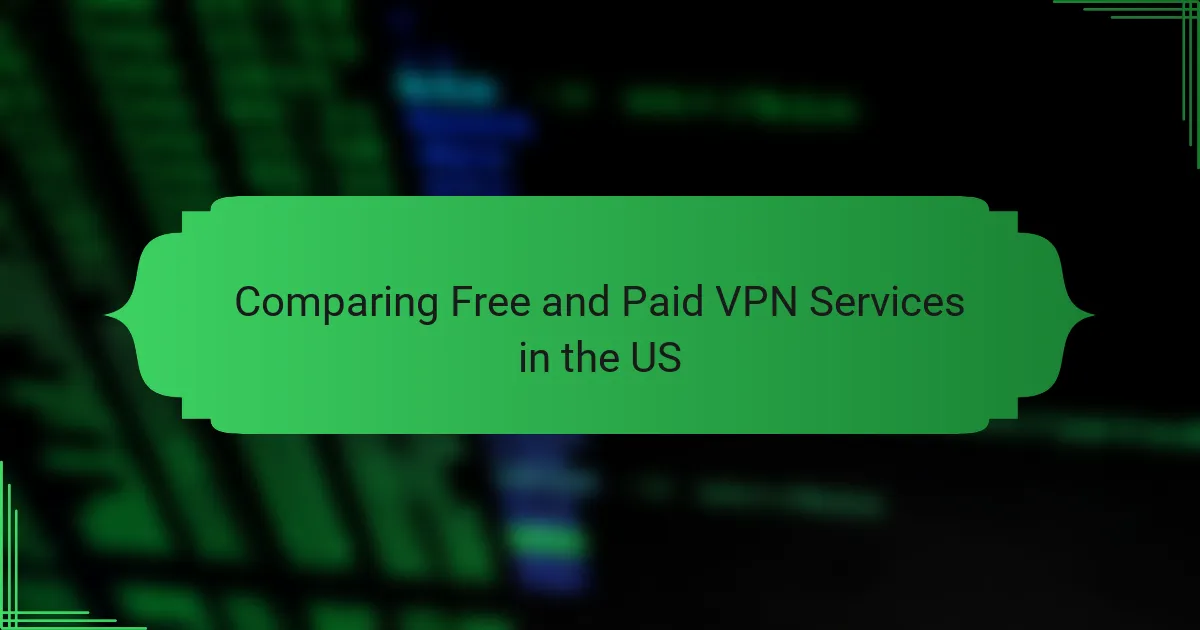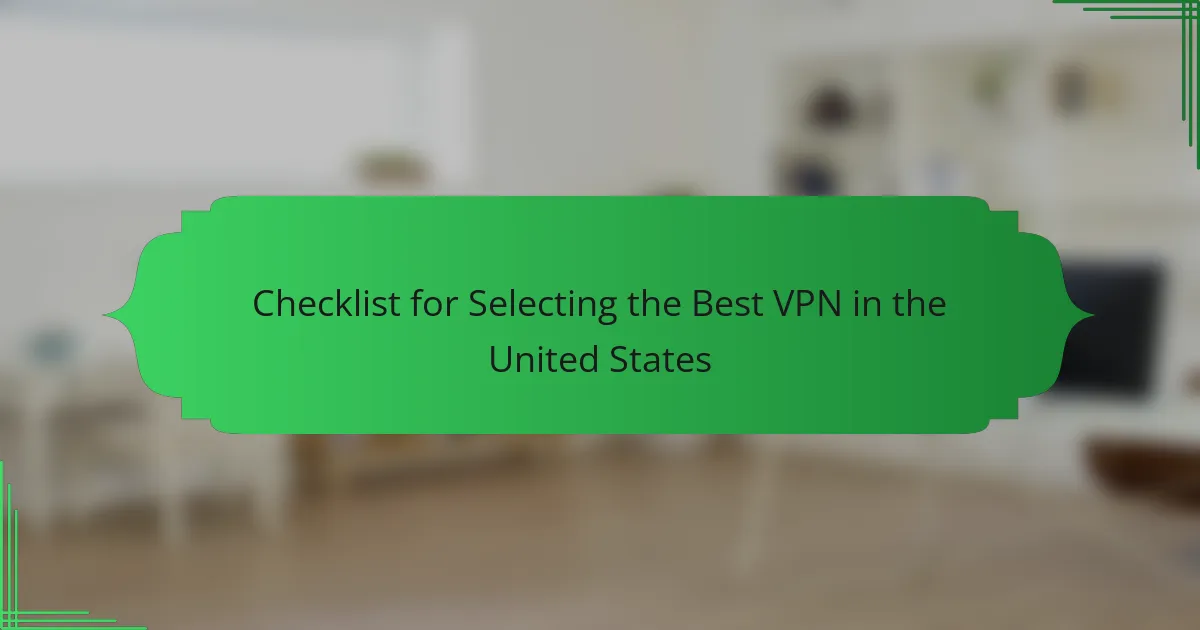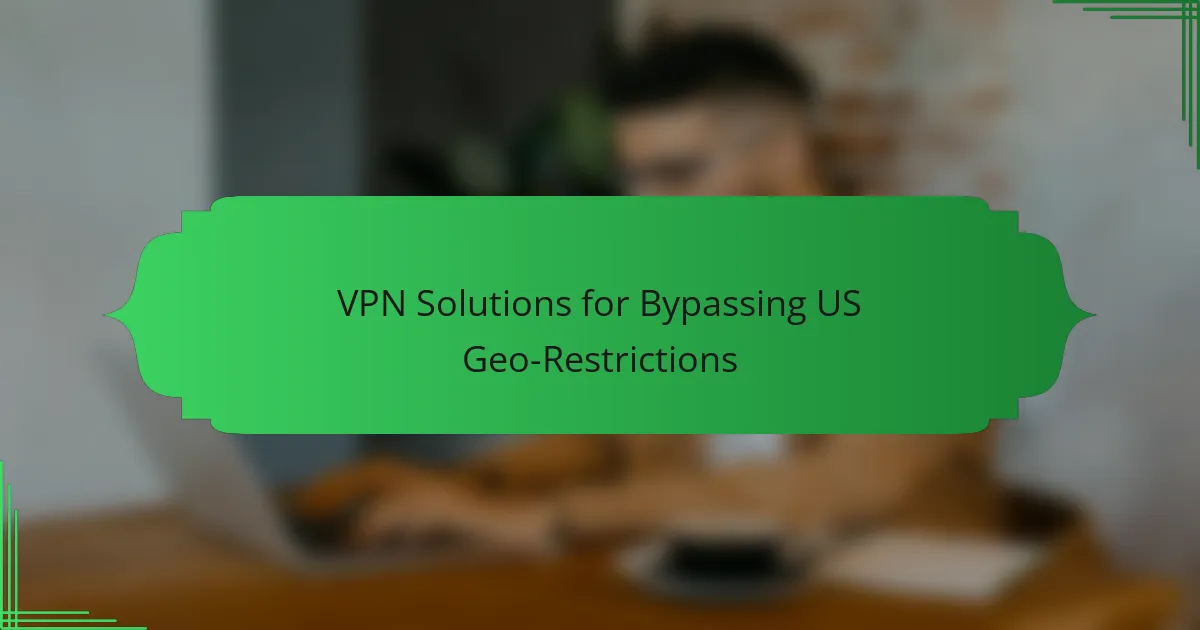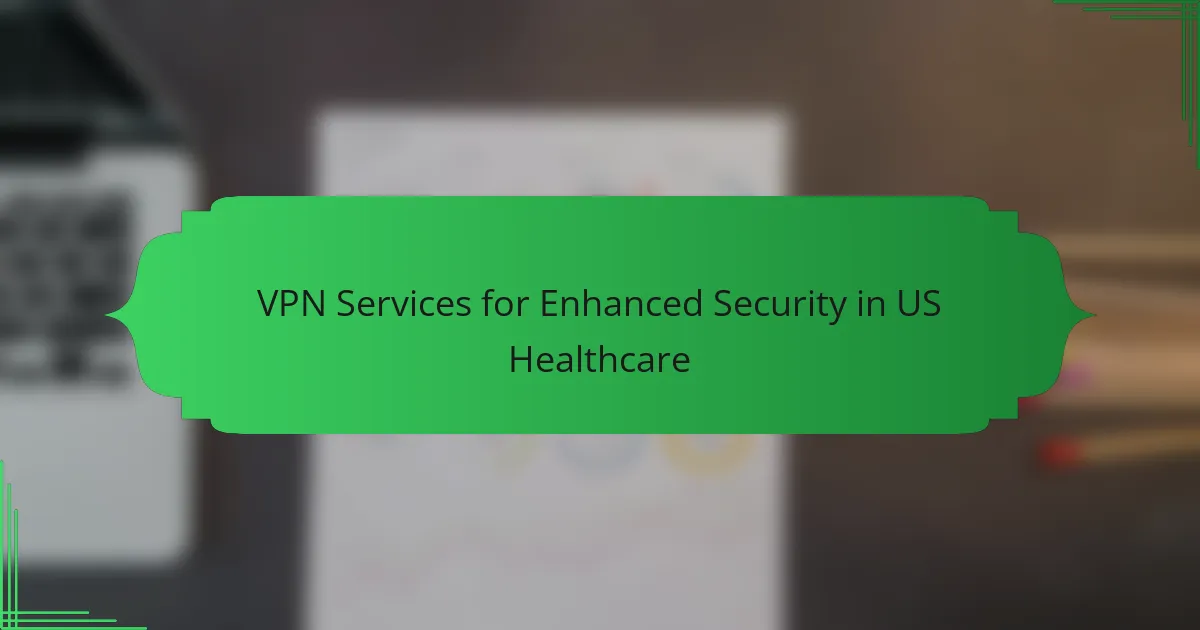In the US, using a VPN can significantly enhance privacy and security while providing access to a wider range of content. While free VPN services may seem attractive due to their no-cost nature, they often come with limitations in functionality and security compared to their paid counterparts. Users must carefully consider these trade-offs to determine the best option for their needs.
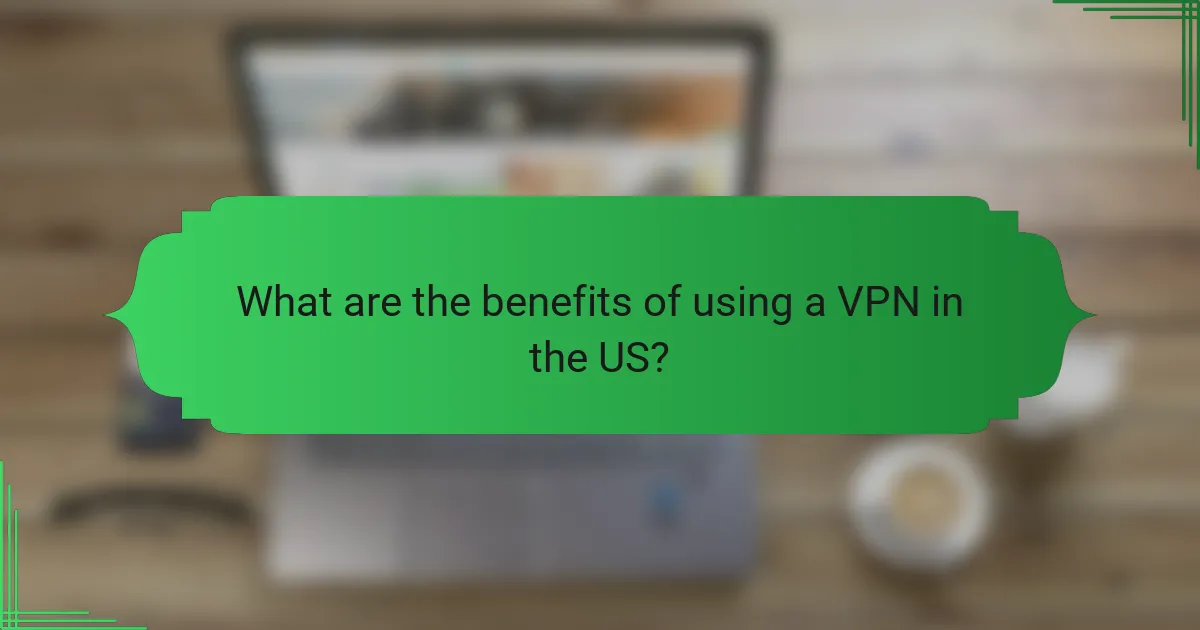
What are the benefits of using a VPN in the US?
Using a VPN in the US offers significant advantages, including enhanced privacy, access to a broader range of content, and improved security, especially on public networks. These benefits cater to users seeking to protect their data and enjoy unrestricted internet access.
Enhanced online privacy
A VPN enhances online privacy by encrypting your internet traffic and masking your IP address. This means that your online activities are less visible to ISPs, advertisers, and potential hackers.
When selecting a VPN, look for services that offer strong encryption standards, such as AES-256, and a strict no-logs policy. This ensures that your browsing history remains private and is not stored or shared.
Access to geo-restricted content
With a VPN, you can bypass geo-restrictions and access content that may be unavailable in the US. This includes streaming services, websites, and applications that limit access based on location.
For example, using a VPN to connect to a server in another country can allow you to watch shows or movies exclusive to that region. However, be aware that some streaming services actively block VPN traffic, so choose a reliable provider known for bypassing these restrictions.
Improved security on public Wi-Fi
Public Wi-Fi networks are often insecure, making them prime targets for cybercriminals. A VPN provides an additional layer of security by encrypting your data, which helps protect sensitive information like passwords and credit card details.
When using public Wi-Fi, always connect to a VPN to safeguard your data. Avoid accessing sensitive accounts or conducting financial transactions on unsecured networks, even with a VPN, to minimize risks.
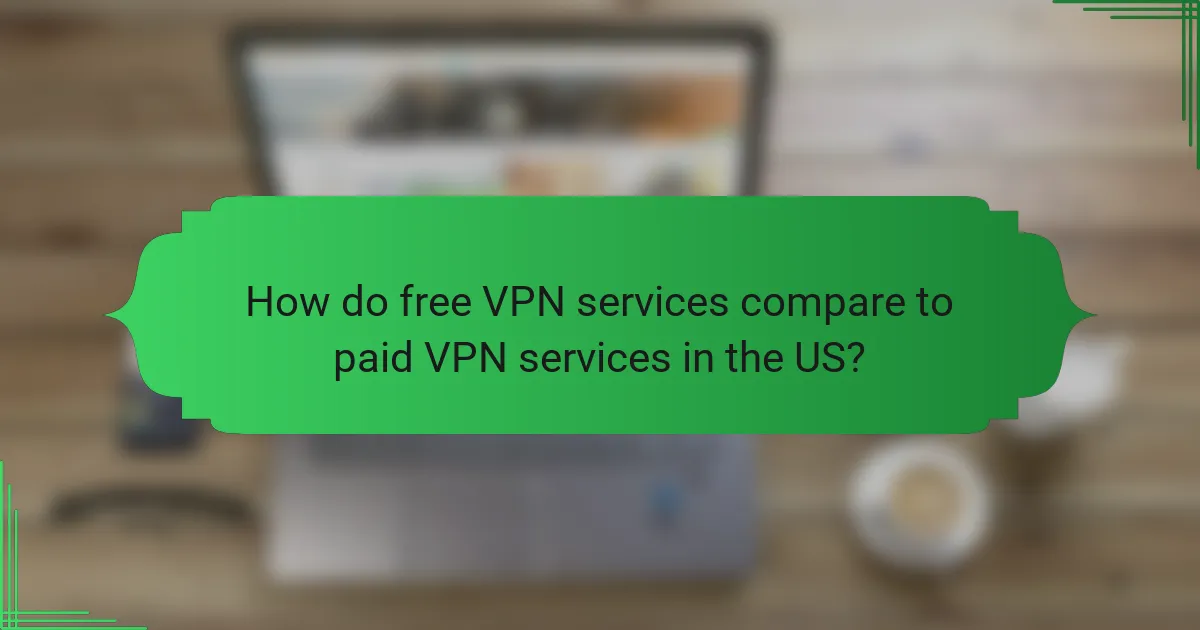
How do free VPN services compare to paid VPN services in the US?
Free VPN services often provide basic functionality but lack the comprehensive features and security of paid options. While they may be appealing due to no cost, users should weigh the limitations and potential risks against the benefits of investing in a paid VPN service.
Limited features in free VPNs
Free VPNs typically offer a restricted set of features compared to their paid counterparts. Users may encounter limitations such as fewer server locations, restricted bandwidth, and a lack of advanced security protocols. This can hinder performance and reduce the overall effectiveness of the VPN.
Additionally, many free VPNs may impose data caps, which can limit usage to only a few hours or a specific amount of data per month. This can be frustrating for users who need consistent access for streaming or large downloads.
Performance differences between free and paid
Performance is a significant differentiator between free and paid VPN services. Paid VPNs generally offer faster speeds and more reliable connections, as they invest in better infrastructure and server maintenance. Users can expect lower latency and higher throughput, which is crucial for activities like gaming or streaming high-definition content.
In contrast, free VPNs often suffer from slower speeds due to overcrowded servers and limited resources. This can lead to buffering and interruptions, making them less suitable for demanding online activities. For users in the US, the choice of a paid VPN can significantly enhance the overall internet experience.
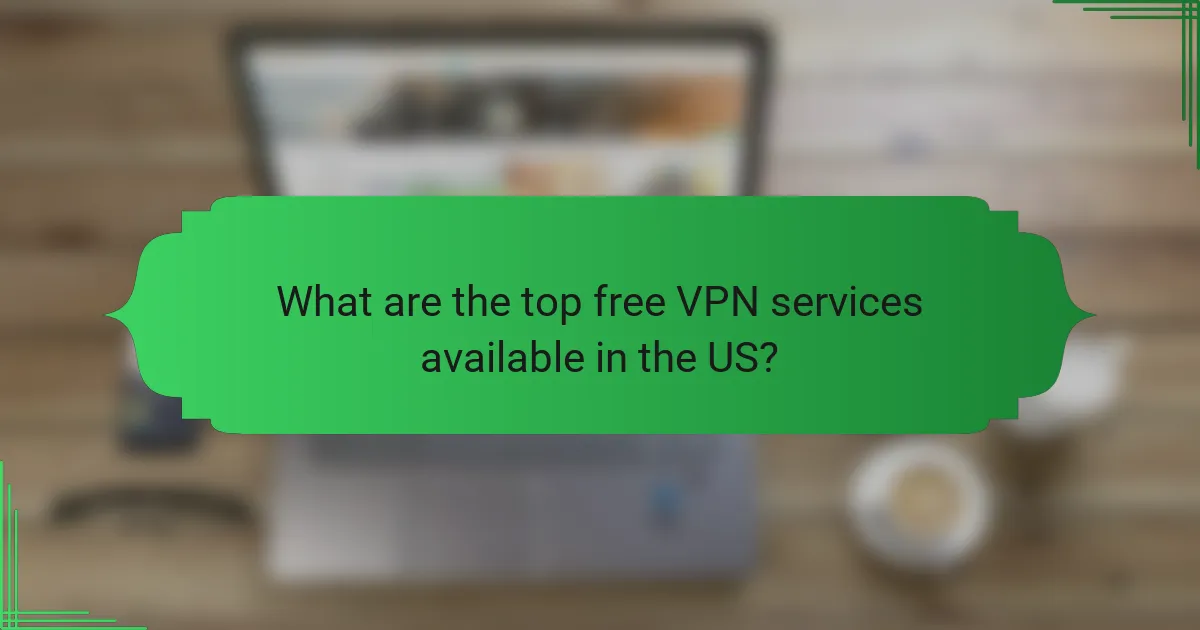
What are the top free VPN services available in the US?
The top free VPN services in the US provide users with basic privacy and security features without any cost. While they can be useful for light browsing, they often come with limitations such as data caps, slower speeds, and fewer server options compared to paid services.
ProtonVPN
ProtonVPN is known for its strong commitment to privacy and security. It offers a free plan that allows users to connect to servers in three countries, although speeds may be limited compared to paid tiers. Users appreciate its no-logs policy and strong encryption standards.
However, the free version has a data limit of 1 GB per month, which may not be sufficient for heavy users. For those who need more bandwidth and additional features, upgrading to a paid plan can provide access to faster servers and more locations.
Windscribe
Windscribe offers a free VPN service with a monthly data allowance of 10 GB, which is relatively generous compared to other free options. Users can connect to servers in multiple countries, enhancing their ability to access geo-restricted content.
Windscribe also includes ad-blocking features and a firewall, adding extra layers of security. However, users should be aware that the free version may experience slower speeds during peak times due to server congestion.
Hotspot Shield
Hotspot Shield provides a free VPN service that is user-friendly and easy to set up. The free version offers a daily data limit of 500 MB, which totals about 15 GB per month. This can be suitable for casual browsing and checking emails.
While Hotspot Shield’s free service is convenient, it does come with ads and may limit access to certain features available in the premium version. Users looking for a more comprehensive experience may consider upgrading to the paid plan for enhanced performance and additional features.
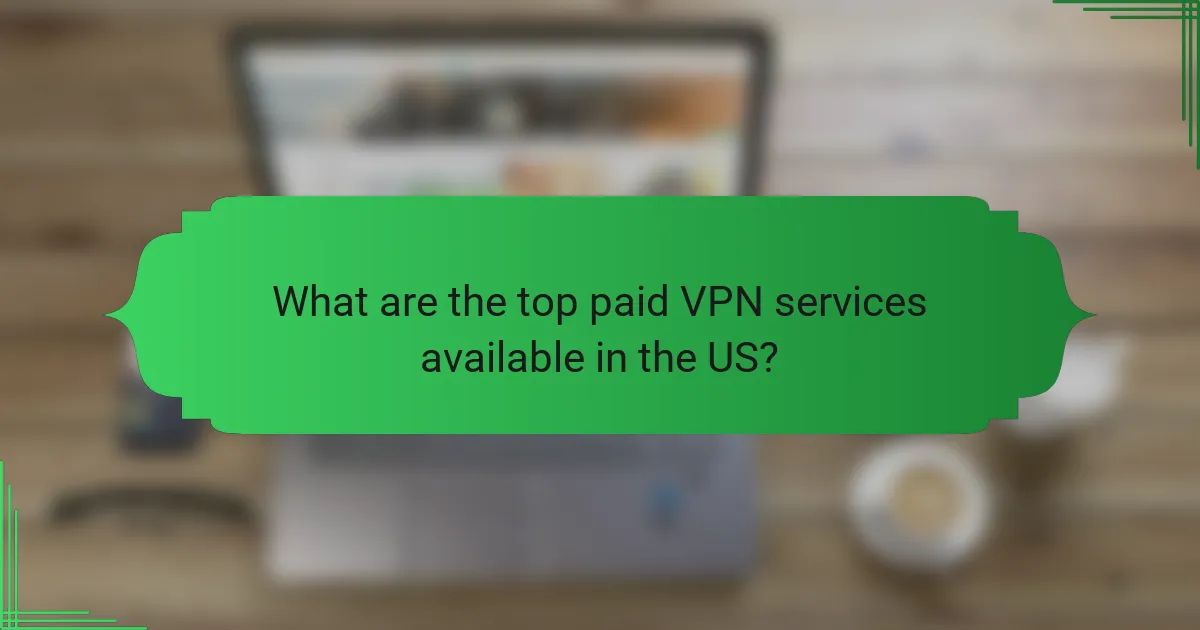
What are the top paid VPN services available in the US?
The top paid VPN services in the US offer enhanced security, faster speeds, and better privacy protection compared to free options. Key players include ExpressVPN, NordVPN, and Surfshark, each providing unique features tailored to different user needs.
ExpressVPN
ExpressVPN is known for its high-speed servers and robust security features, making it a popular choice among users seeking reliable privacy. It operates over 3,000 servers in 94 countries, allowing for seamless streaming and browsing.
One of its standout features is the split tunneling option, which lets users choose which apps use the VPN connection. This flexibility is beneficial for those who want to maintain local access while using a VPN for specific tasks.
NordVPN
NordVPN offers a strong focus on security with features like double VPN and Onion over VPN, which add extra layers of encryption. With over 5,000 servers worldwide, it provides excellent performance for streaming and torrenting.
The service includes a user-friendly interface and allows up to six simultaneous connections, making it suitable for families or multiple devices. Its competitive pricing often includes discounts for longer subscriptions, making it a cost-effective option.
Surfshark
Surfshark is recognized for its unlimited device connections, allowing users to protect all their gadgets with a single subscription. It boasts over 3,200 servers in 65 countries, ensuring good speeds and access to various content libraries.
Additionally, Surfshark includes features like CleanWeb, which blocks ads and trackers, enhancing the browsing experience. Its affordability, especially for long-term plans, makes it an attractive choice for budget-conscious users seeking comprehensive online protection.
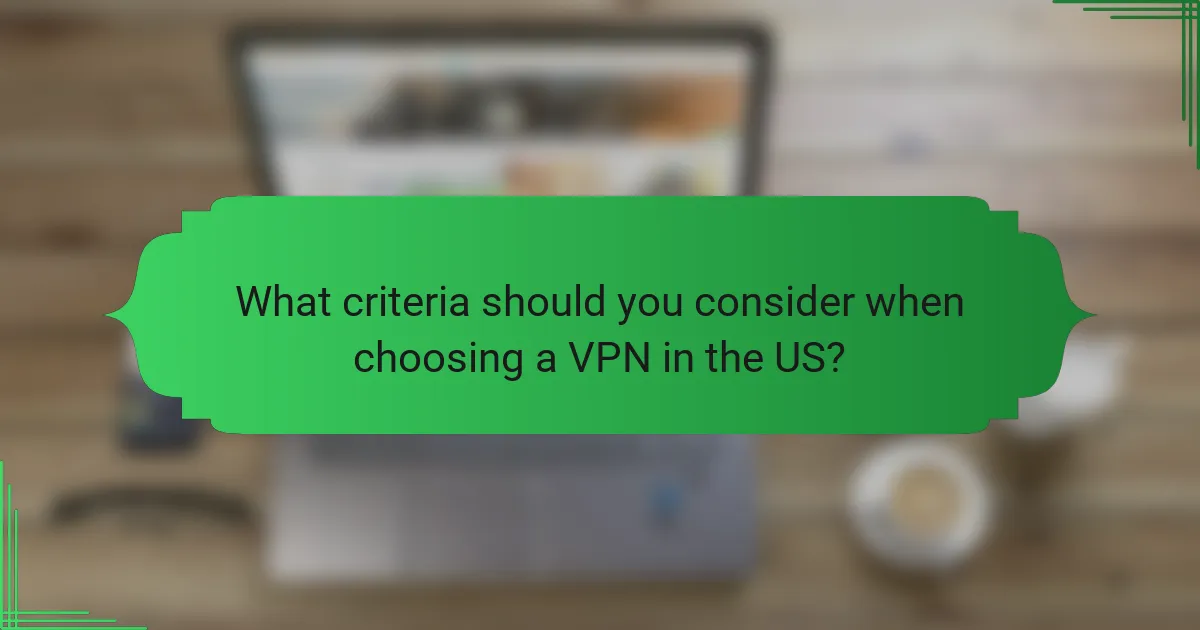
What criteria should you consider when choosing a VPN in the US?
When selecting a VPN in the US, consider factors such as speed, privacy policies, and customer support. These criteria will help ensure that you choose a service that meets your needs for security and usability.
Speed and performance
Speed and performance are crucial when choosing a VPN, as they affect your browsing experience. Look for VPNs that offer fast connection speeds, ideally in the range of 25-100 Mbps, depending on your internet plan.
Consider the VPN’s server locations; more servers in the US can lead to better speeds. Additionally, check for features like split tunneling, which allows you to choose which apps use the VPN, potentially improving performance for other applications.
Privacy policies and logging practices
Privacy policies and logging practices are essential for ensuring your online activities remain confidential. Choose a VPN that has a strict no-logs policy, meaning they do not store any data about your browsing history.
Review the VPN’s privacy policy for transparency regarding data collection and sharing. Look for services based in privacy-friendly jurisdictions, such as those outside the 14 Eyes alliance, to enhance your data protection.
Customer support options
Customer support options can significantly impact your experience with a VPN. Opt for providers that offer 24/7 support via live chat or phone, ensuring you can get help whenever needed.
Additionally, check for comprehensive online resources, such as FAQs and troubleshooting guides. A well-supported VPN can save you time and frustration when issues arise, making it a vital consideration in your decision-making process.
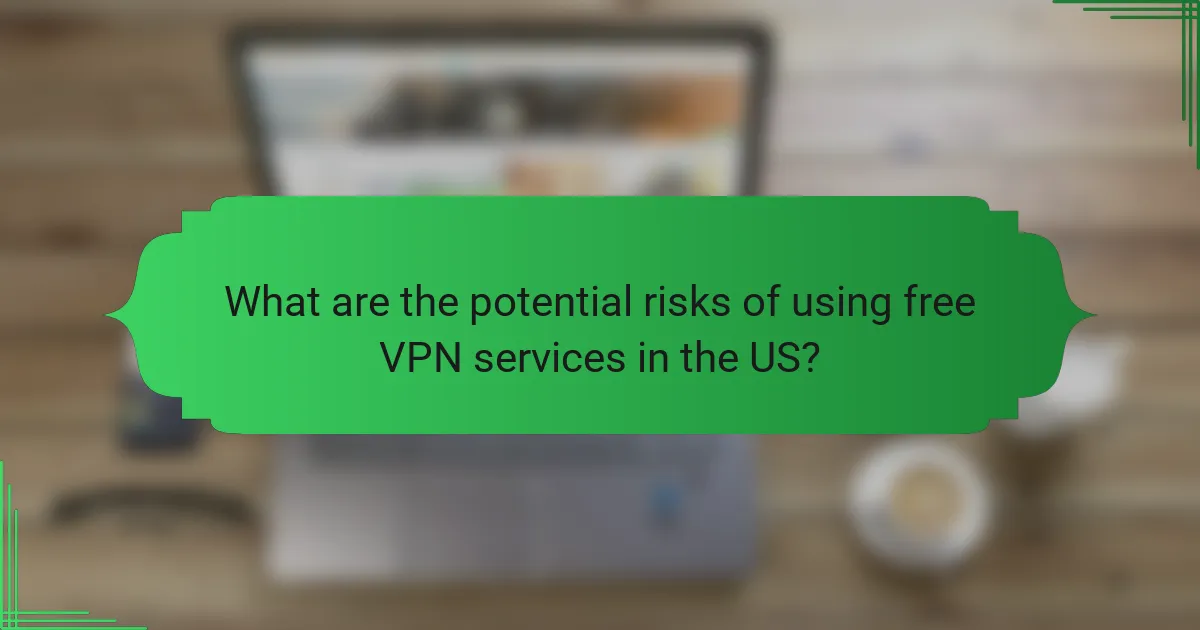
What are the potential risks of using free VPN services in the US?
Using free VPN services in the US can expose users to various risks, including data privacy issues and security vulnerabilities. While these services may seem appealing due to their lack of cost, they often come with significant trade-offs that can compromise user safety.
Data logging and privacy concerns
Many free VPN providers engage in data logging practices, which can jeopardize user privacy. They may track your online activities, including websites visited and data transmitted, often to sell this information to third parties.
In the US, there are no strict regulations governing how VPNs handle user data, making it crucial to read the privacy policy of any free VPN service. Look for terms like “no logs” or “anonymous browsing” to gauge their commitment to privacy.
Common pitfalls include assuming that all free VPNs are safe. Always research and consider user reviews to identify those with a history of data breaches or poor privacy practices.
